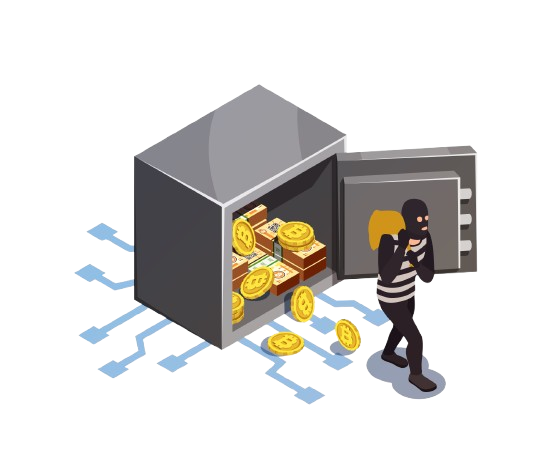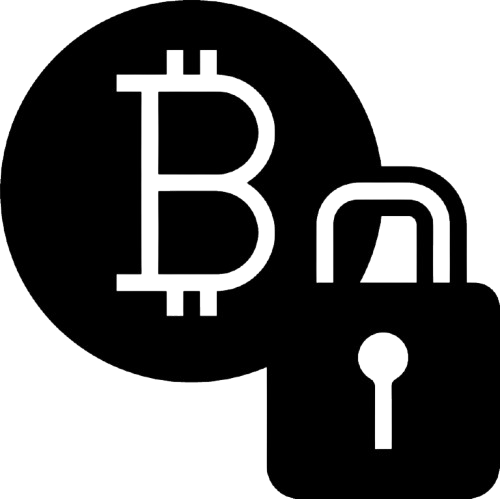
Cryptocurrency continues to capture global attention, offering both opportunity and innovation. Alongside this rapid progress, however, comes an increasing wave of risks. Scams are becoming more sophisticated, targeting not only those new to Bitcoin but also experienced investors. As digital assets gain momentum in 2025, knowing how to recognize and avoid these threats is just as vital as understanding the basics of trading and transactions.
This guide walks you through the most common traps and, more importantly, how to sidestep them.
What Are the Most Common Bitcoin Scams in 2025?
Crypto scams are no longer crude or easy to dismiss. They’ve become sophisticated, often dressed up in sleek websites, professional messaging, and even fake endorsements. Some scams still revolve around the same old tactics, like phishing links or fake giveaways, but others disguise themselves as advanced opportunities.
One of the biggest dangers lies in impersonation. Scammers pretend to be trusted services or influencers to lure you into sending Bitcoin to a fraudulent wallet. Then some schemes promise to double your Bitcoin instantly. On the surface, they look appealing, especially to someone new to the space. But in reality, they’re nothing more than digital traps.
How Can You Spot a Fake Crypto Wallet or Exchange?
Wallets and exchanges are where most people first encounter scams. A fake wallet may look and feel like the real thing, but its true purpose is to steal your private keys. The same goes for fraudulent crypto exchanges, they invite you to deposit Bitcoin, but once you do, the funds are gone.
Spotting the difference requires patience and caution. Real services don’t push you aggressively or demand you act instantly. Fake ones often thrive on pressure, flashy claims, or promises of exclusive access. Take time to verify before you download a wallet or trust an exchange with your assets.
Social Media Bitcoin Scams: Are You at Risk?

Scrolling through your feed, you might see posts promising free Bitcoin or special deals if you act fast. These social media scams are everywhere. They prey on curiosity and the trust people place in familiar platforms.
The trick is simple: scammers promise quick rewards if you send Bitcoin to their address. Of course, nothing comes back in return. The polished look of these posts, complete with logos or fake celebrity endorsements, makes them hard to ignore. But the rule of thumb is clear, if it sounds too good to be true, it probably is.
Why Do “Guaranteed Returns” Bitcoin Schemes Always Fail?
The promise of guaranteed profit is one of the oldest scams in finance, and it has simply been repackaged for Bitcoin. Some schemes call themselves investment platforms. Others pretend to be automated trading bots. What they all share is the claim that you can’t lose.
The reality? Markets fluctuate. No one can predict outcomes with certainty, and anyone claiming otherwise is not being truthful. These schemes usually collect deposits until they vanish altogether, leaving investors empty-handed. Recognizing this pattern early can save you from disappointment and loss.
Verification Best Practices for Bitcoin Services
Before trusting any platform, the key is verification. Always check if a wallet or exchange has a legitimate history, but go beyond appearances. Don’t rely on social media hype or anonymous reviews. Instead, test with small amounts, look for consistent communication, and confirm that security measures such as two-factor authentication are in place.
A good habit is to step back and ask: Do I fully understand how this service works? If the answer is no, it’s better to pause until you do. Blind trust is often what scammers rely on most.
What Should You Do If You’ve Been Scammed?
Realizing you’ve been tricked can feel devastating. The first step is not to panic. Document everything—the wallet address, the website, the messages you received. Reporting the scam to relevant authorities or crypto support communities may not always recover your funds, but it can help stop the same scam from spreading further.
Most importantly, treat the experience as a learning moment. The crypto landscape is constantly shifting, and even experts occasionally fall for scams. What matters is building resilience and knowing how to avoid the same trap twice.
Essential Security Habits for Safe Bitcoin Storage

Scams are only part of the picture. Sometimes, poor habits create opportunities for thieves. Leaving Bitcoin on an exchange for too long, reusing the same passwords, or storing private keys in unprotected files are all risky moves.
Developing good security habits is crucial. Use strong passwords, enable two-factor authentication, and consider offline storage solutions for long-term holdings. A little extra caution in daily practice can go a long way in keeping your Bitcoin secure.
How to Protect Your Bitcoin Investment Long-Term?
Think of Bitcoin security not as a one-time task but as an ongoing commitment. Scammers evolve, and so should your defenses. Stay updated on new scam tactics, diversify where you store your Bitcoin, and don’t let greed or urgency cloud your judgment.
Long-term protection is really about mindset. Patience, skepticism, and careful planning will protect your investment better than any quick fix. When you combine awareness with discipline, you’re far less likely to be caught off guard.
Conclusion
Crypto scams in 2025 are more convincing than ever, but that doesn’t mean you’re powerless. By learning to recognize fake wallets, avoiding “guaranteed return” schemes, staying alert on social media, and practicing good security habits, you give yourself the best possible protection.
Bitcoin is built on trust in code and transparency on the blockchain, but your personal security depends on how cautious you are in the real world. Stay curious, stay skeptical, and stay safe, because in crypto, awareness is your strongest investment.